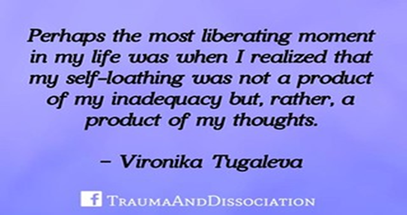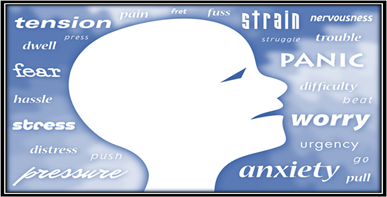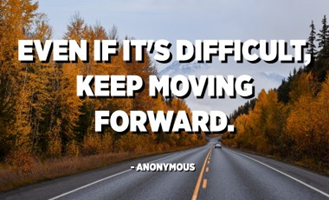Research Article
Learning to Cope with Trauma and Moving Forward
ARC Counseling and Therapy Services, LLC which is a Suboxone clinic where we also treat mental health issues, USA.
*Corresponding Author: Connie Taute, LPC, AADC, LADAC, ARC Counseling and Therapy Services, LLC which is a Suboxone clinic where we also treat mental health issues, USA.
Citation: Taute C. (2023). Learning to Cope with Trauma and Moving Forward, Journal of Clinical Psychology and Mental Health, BioRes Scientia Publishers, 2(1):1-6. DOI: 10.59657/2993-0227.brs.23.005
Copyright: © 2023 Connie Taute, this is an open-access article distributed under the terms of the Creative Commons Attribution License, which permits unrestricted use, distribution, and reproduction in any medium, provided the original author and source are credited.
Received: March 06, 2023 | Accepted: April 14, 2023 | Published: April 20, 2023
Abstract
Stages to processing trauma are basically nonexistent. Clients who have been through trauma and are struggling with emotions, irrational thoughts/fears, etc. are the inspiration for developing the stages of validating feelings/emotions, combating irrational thoughts/fears, developing and implementing healthy coping skills and avoiding negative coping skills, regaining control and power, and being able to move forward. Too many who have experienced trauma turn to drugs (methamphetamine, cocaine, heroin) or alcohol to “numb” the pain and the memories. This paper is to assist in developing healthy techniques for processing and moving forward after a traumatic event.
Keywords: trauma; processing; stages
Introduction
Trauma is “an emotional response to a terrible event” (APA, n. d.). It affects everyone in different ways. It comes in many different forms whether it is from serving in the military, being abused as a child, sexual abuse, physical abuse, environmental, etc. There are also many ways to deal or cope with trauma. Some run from it, some face it head-on, some turn to drugs and/or alcohol. I have talked to many individuals who have faced trauma and who either remain a victim of it or became survivors of it. In talking to many individuals, drugs and/or alcohol has become the “coping mechanism” for trauma as they try to “numb the emotions and feelings” to function in society.
Society has set the standard for dealing with trauma and can make victims avoid discussing it as they can feel judged and even condemned. In talking with some of my clients, they feel they are just supposed to “deal with it”, “suck it up and get on with your life”. They are further victimized by the justice system, and sometimes even family and friends, if they report rape or sexual assault. This is why many women and men refuse to come forward and “hide in the shadows” and many become addicted to prescription pain pills, Xanax, methamphetamine, cocaine, heroin, alcohol, and other addictions to “function” in society. “Individuals with trauma histories may be more vulnerable to addiction as a means of regulating their mood, quieting intrusive thoughts, and suppressing the arousal caused by elevated stress hormones” (Levin et al., 2021; van der Kolk, 2014; Glordano, 2021).
There are steps to process grief, steps to recover from addictions, ways to deal with anxiety, depression, and many other issues. When researching coping with trauma, most of what I found were processing grief steps, learning to overcome anxiety and depression, but no real way to cope with and deal with trauma to become a survivor and stop being a victim. Becoming a survivor does not happen overnight. It takes a lot of work and an emotional toll on the individual, but in the end, they become stronger than they believed they could. This is my way of helping trauma victims to become the survivor they deserve to be. There are different types of traumas: acute, complex, and chronic. According to Jocelyn Solis-Moreira (2022), “acute is a single event that causes distress or put you in danger, such as car accident or natural disaster. Complex is repeated exposure to events that cause severe distress or fear, such as sexual abuse, torture, or chronic abandonment. Chronic is repeated exposure to a dangerous or stressful event, such as bullying or domestic violence”.
Figure 1
Stages to Assist Trauma Victims to Become Survivors, these stages are not to be rushed through. Take your time and discover yourself.
Validation of emotions and feelings
Trauma victims need to know they are entitled to feel anger, frustration, fear, trapped, depressed, etc. In knowing it is okay to not be okay they can process their emotions/feelings and not hold them in to eventually explode or feel they are undeserving of being happy and safe. Let them express how they feel and process each emotion one at a time.
Figure 2
Combat irrational thoughts and fears
It is time to stop running and face yourself. Realizing it is not your fault, stopping the guilt and shame of feeling you “deserved” what happened to you. Irrational thoughts are defined as could include black or white thinking, all or none thinking, catastrophizing, and other thoughts. The fear of being alone, the fear of being around other people, the fear of being touched are all real fears that can develop from trauma. Some individuals may experience a fear of “it happening again” or the person finding them and traumatizing them again. A feeling of being held down and being stuck are also fearful thoughts that may cause more irrational thoughts. Being able to learn to focus on positive thinking and reduce negative thinking is a step in the journey to become a survivor and learning to trust yourself again. Just remember: YOU did not deserve to be what happened to you!.
Breaking down the cognitive distortions and irrational fears can help the individual understand how to move forward. Rosenberg (2019) described all or nothing thinking as black or white thinking with no gray area; catastrophizing is when you expect the worst to happen; labelling is “I’m a loser or failure”; mindreading is you feel you know what others are saying or thinking about you; personalization is “I’m the reason this failed”; discounting the positive is looking past or ignoring positive outcomes; and emotional reading is “it feels bad so it must be bad”. Realizing that bad things happen but also good things happen and accepting the good can help to overcome the barriers of the negative. Talking it out with someone such as a therapist, preacher, or someone unbiased and non-judgmental go a long way in becoming a survivor.
Developing and Implementing Healthy Coping Skills
Turning to drugs and alcohol can make you feel numb and forget the pain, anger, depression, hurt, etc. but it can also cause more pain, anger, depression, hurt, and even add to these feelings/emotions. Unhealthy coping skills such as alcohol and substances, as well as isolation, can create an unhealthy environment in which trauma can be triggered. Helping clients to develop and implement healthy coping skills and techniques can also help them to discover their true self and strengths to continue moving forward in life and survival.
Healthy coping skills and self-care include taking a walk, listening to music, taking a long hot shower, going to the gym, meditation, deep breathing, and many other options. Make sure you have multiple skills in your toolbox as you may need to try different ones to find which one will work at the moment. Many individuals do not have someone to lean on or talk to so work to find the ones which will work for you and you alone. Do not worry about what other people will think if you choose to be alone to process your trauma. Just remember it is unhealthy to isolate for too long, but sometimes we need to be alone at times. Being alone too much or for too long may cause overthinking which can lead back to irrational thoughts and fears and then you are taking a step back instead of moving forward.
Regaining Control/Power
Regaining control and/or power are going to be difficult as this can involve facing your abuser but also yourself. It can also mean writing or rewriting a victim impact letter. In writing an impact letter, this can include past emotions and feelings. Be honest with yourself in how you felt at the time and then rewrite another impact letter of how you are doing, feeling now. This is for your benefit and no one else’s benefit. Write the letter and read it to someone, burn it, mail it to yourself, or whatever will help you move forward.
Self-blaming and self-loathing are part of the problem with regaining control and power. These can also be part of the stage of validating emotions and feelings. Sometimes victims are blamed for what they are going through which can create self-hate. These can lead to unhealthy coping skills of drinking and drugs as the individual is hiding from themselves and the need to numb emotions and feelings. In regaining control, the individual needs to let go of these hardships and place blame where it lies-in the behavior of the abuser.
Figure 3
Moving Forward
Moving forward is as difficult as beginning the journey from victim to survivor. Questions you may ask yourself are “What now?” “Where do I go from here?”. Continue working on yourself one step at a time. The journey can get easier and you can love yourself again. Rely on your toolbox of self-care and coping techniques. It’s okay to not be okay, just do not allow it to dictate your life and let it keep you down the rabbit hole of self-blame, anger, depression, and torture. Everyone’s journey is different and yours to travel.
Figure 4
Conclusion
These stages are created to assist trauma victims to work through, validate, and move forward with the many fears and irrational thoughts one can go through. I hope this helps people from all realms of trauma to realize they are not alone and they do not have to live in fear, pain, anger, depression, self-loathing, being blamed for the actions of someone else, the many other emotions and feelings that develop. Trauma should not control your life. The old saying “forgive and forget” is sometimes too much, but hopefully in time you can forgive although you will never forget. Good luck in your self-recovery journey and may you find the survivor living in you.
References
- Glordano, A. L. (2021). Why Trauma Can Lead to Addiction. Psychology Today.
Publisher | Google Scholor - Levin, Y., Bar-Or., R. L., Forer, R., Vaserman, M., Kor, A., & Lev-Ran, S. (2021). The association between type of trauma, level of exposure, and addiction. Addictive Behaviors, 118:106889.
Publisher | Google Scholor - Rosenberg, J. (2019). 5 irrational thinking patterns that could be dragging you down-and how to start challenging them. TED.
Publisher | Google Scholor - Solis-Moreira, J. (2022). Trauma: It's Not What You Think and Why THAT Matters. Jocelyn Solis-Moreira. Psychcentral.
Publisher | Google Scholor - APA. (2023). Trauma-american psychological association (n. d.) .
Publisher | Google Scholor - van der Kolk, B. A. (2014). The body keeps the score: Brain, mind, and body in the healing of trauma. Penguin Books.
Publisher | Google Scholor


















